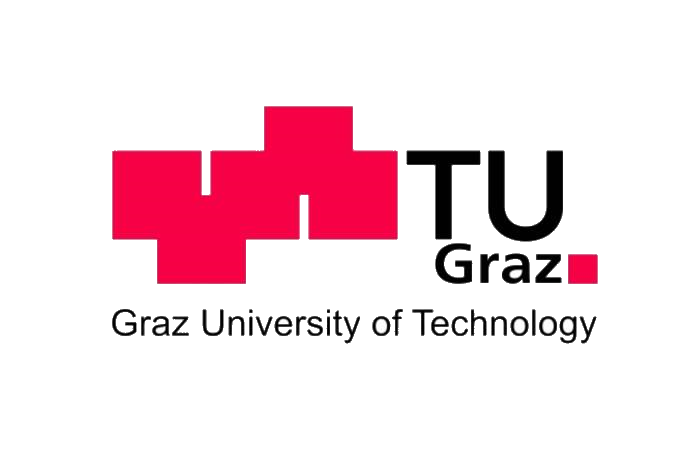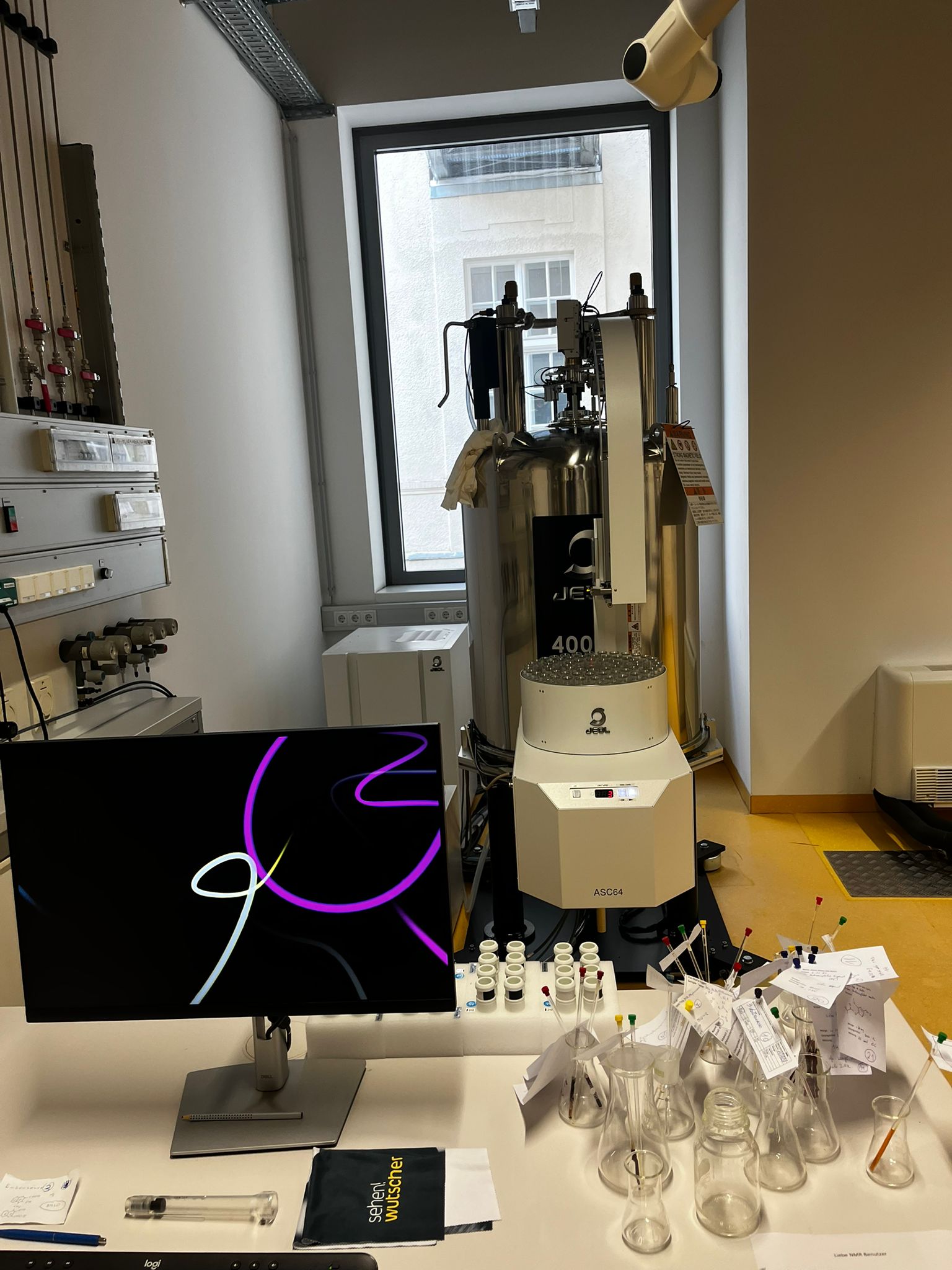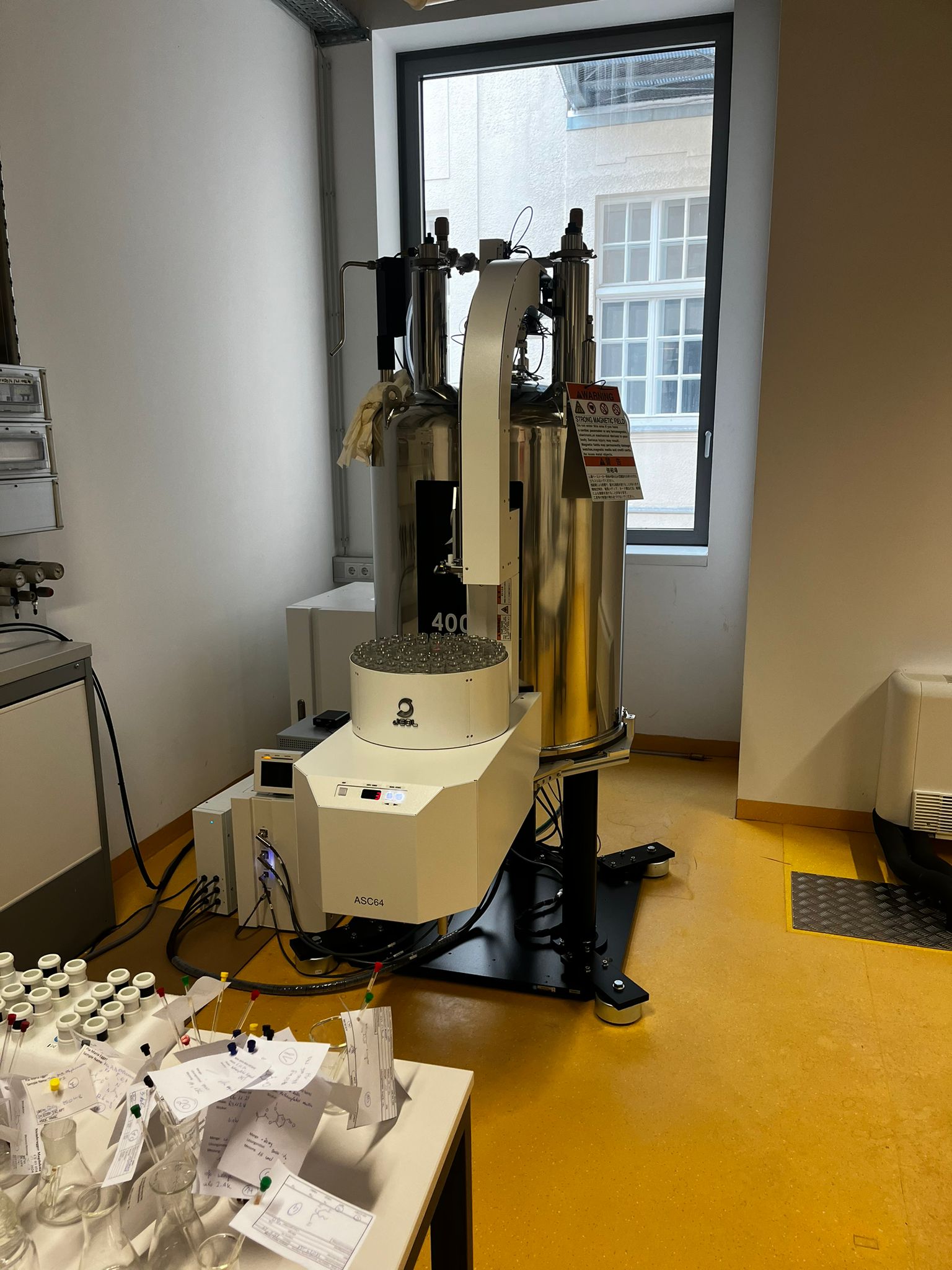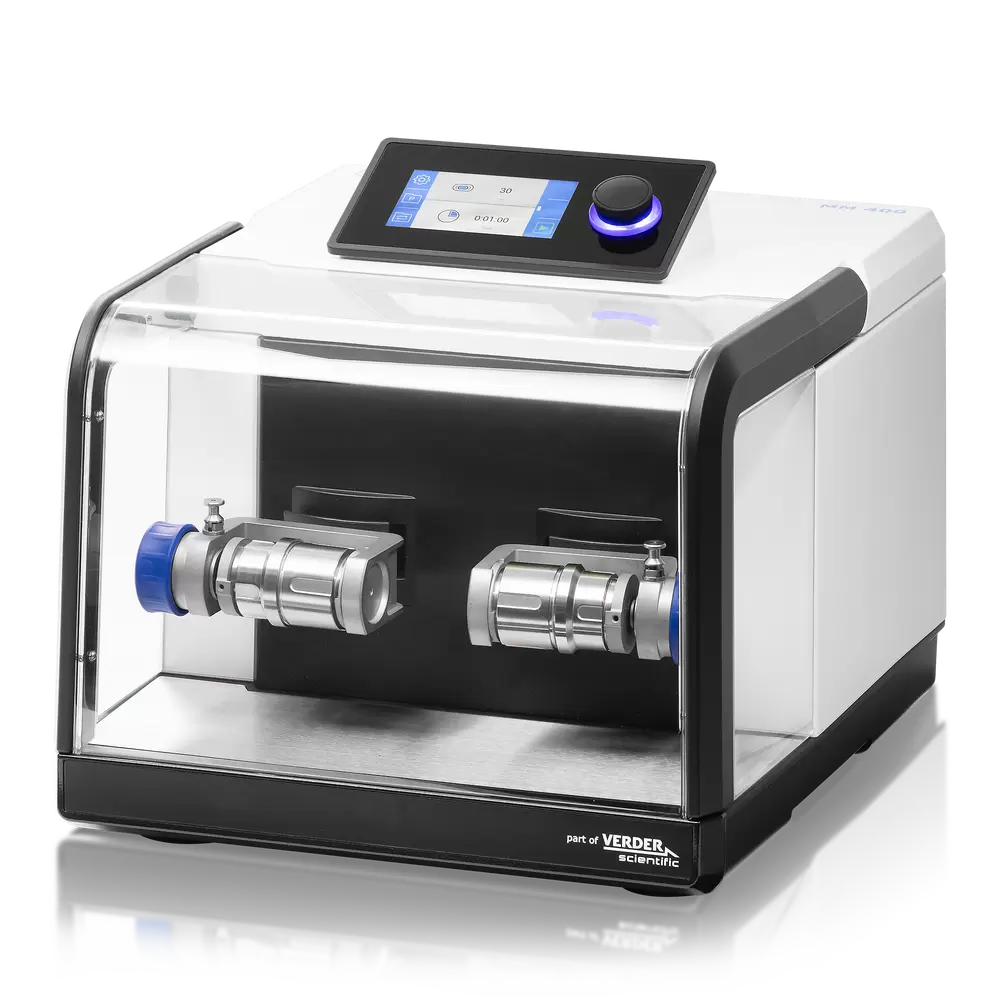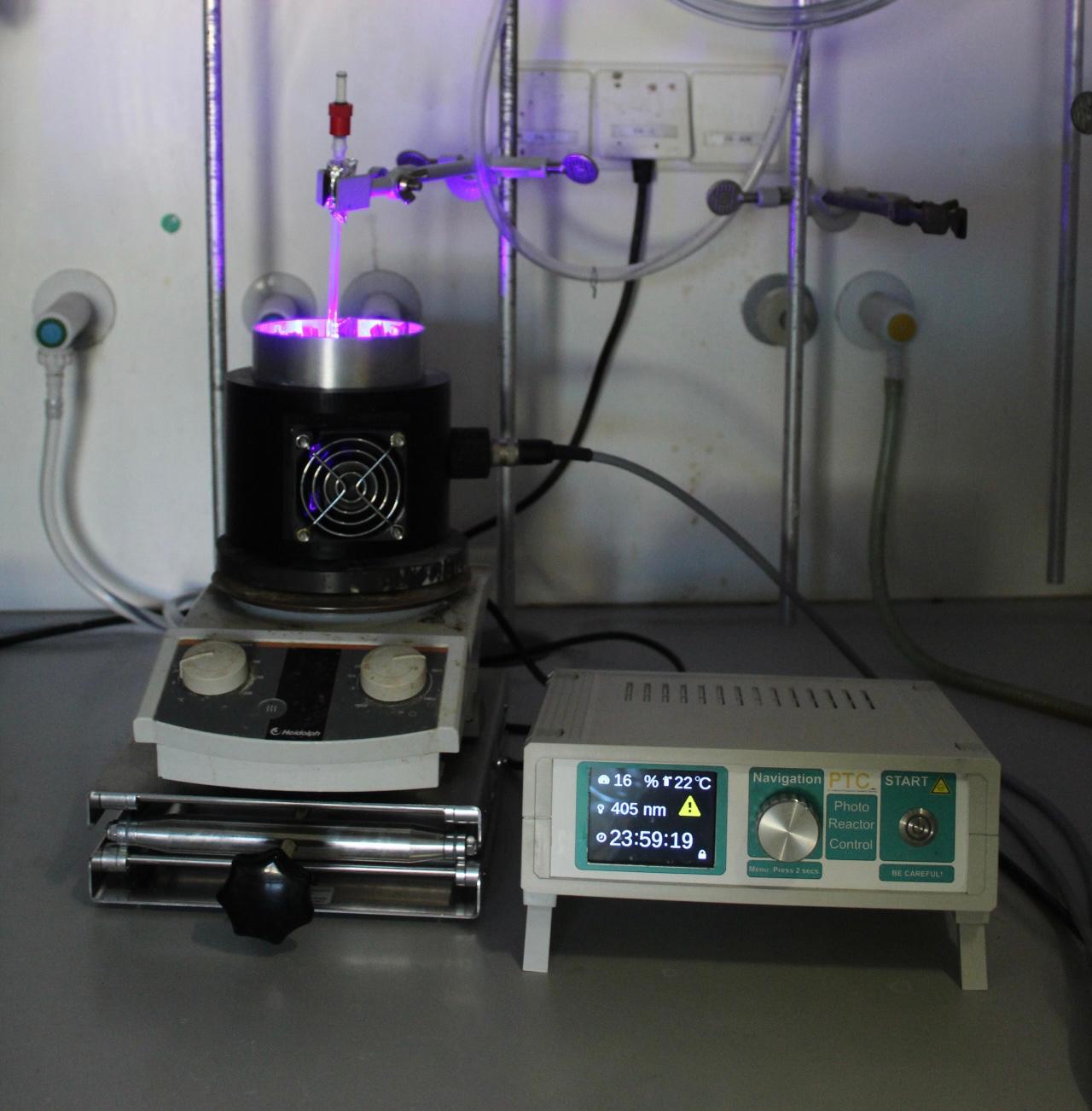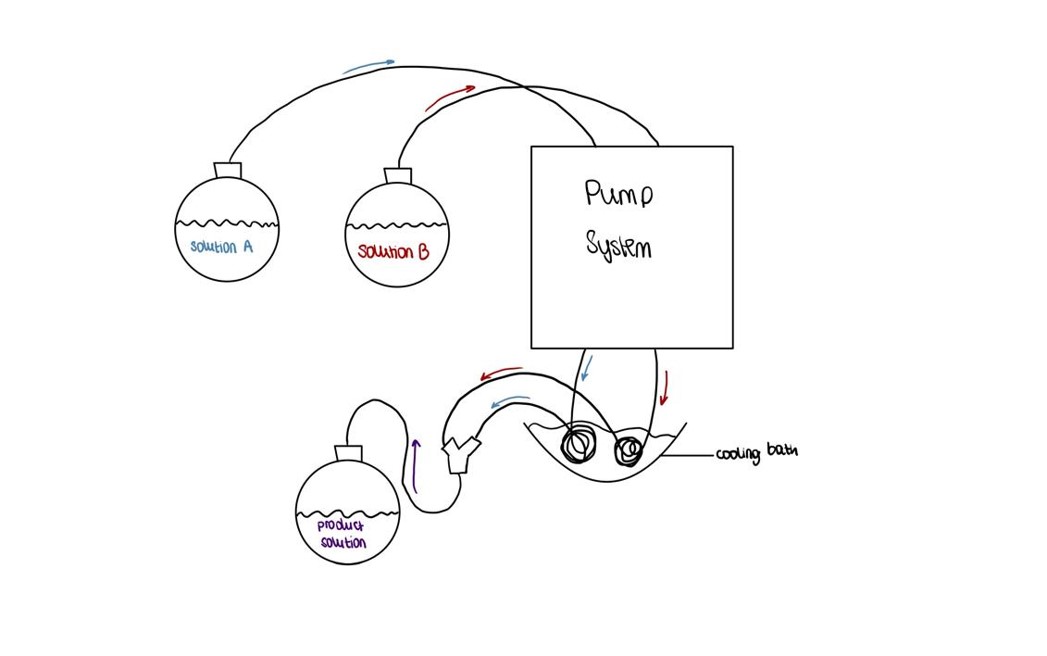NMR Spectroscopy
NMR spectroscopy of solutions has become a predominant
characterization method in organic and inorganic synthesis.
This technique is based on the magnetic properties of the
measured atomic nuclei. The physical and chemical properties
of the molecule affect the observed nucleus and thus its magnetic
characteristics allow for structural conclusion of the molecule.
The physical and chemical properties of the environment surrounding the observed nuclei change its magnetic properties and thus from its magnetic behavior conclusion on the molecule's structure can be made. This measurement relies on the phenomenon of nuclear magnetic resonance with electromagnetic radiation and can therefore provide detailed information on the structure, dynamics, reaction state, and chemical environment of molecules. The total magnetic field acting on the atom of interest in a molecule changes its resonance frequency and therefore allows for information on the electronic structure of the molecule. Frequently observed nuclei are 1H, 13C, 29Si, 119Sn, 19F, 7Li, 31P, 11B
The physical and chemical properties of the environment surrounding the observed nuclei change its magnetic properties and thus from its magnetic behavior conclusion on the molecule's structure can be made. This measurement relies on the phenomenon of nuclear magnetic resonance with electromagnetic radiation and can therefore provide detailed information on the structure, dynamics, reaction state, and chemical environment of molecules. The total magnetic field acting on the atom of interest in a molecule changes its resonance frequency and therefore allows for information on the electronic structure of the molecule. Frequently observed nuclei are 1H, 13C, 29Si, 119Sn, 19F, 7Li, 31P, 11B
Ball Mill
Retsch Mixer Mill MM 400.
This ball mill is a true multipurpose mill designed for dry, wet and cryogenic grinding of small volumes up to 2 x 20 ml. It mixes and homogenizes powders and suspensions with a frequency of 30 Hz within seconds – unbeatably fast and easy to operate.
This ball mill is a true multipurpose mill designed for dry, wet and cryogenic grinding of small volumes up to 2 x 20 ml. It mixes and homogenizes powders and suspensions with a frequency of 30 Hz within seconds – unbeatably fast and easy to operate.
Photochemistry
Photochemical experiments are run on a self-made photo reactor with arrays of various light-emitting diodes (LED) having an emission spectrum centered at 365 nm, 405 nm, 550 nm, and 590 nm, respectively. The photo reactor setup comprises 24 LEDs per defined wavelength with a total electrical output power of 25W. Additionally, an integrated cooling system is keeping a constant reaction temperature of 23°C.
Flow Chemistry
Flow Chemistry is a new and innovative field in Main Group Chemistry. Flow chemistry is also known as continuous flow or plug flow chemistry. In this process, a chemical reaction is carried out in a continuous flow. The process offers the potential for efficient production of chemical products.
IR Spectroscopy
Bruker Alpha with universal sampling module and Platinum
ATR module for everyday measurements. Most solid and liquid
samples do not need further preparation. Bruker IFS v/66 featuring
separate light sources for near-, mid- and far-infrared.
Measurements can be carried out under nitrogen atmosphere or even
vacuum to avoid background signals caused by atmosphere.
Gas Chromatography - Mass Spectrometry
Agilent 7890A and 5975C: gas chromatography
combined with mass spectrometry for liquid solutions.
Gloveboxes
Several Glove boxes for work in an inert gas environment (<1 ppm O2 and H2O), equipped with -35 ° freezers.
DEPARTMENT OF INORGANIC CHEMISTRY | Technical University Graz

